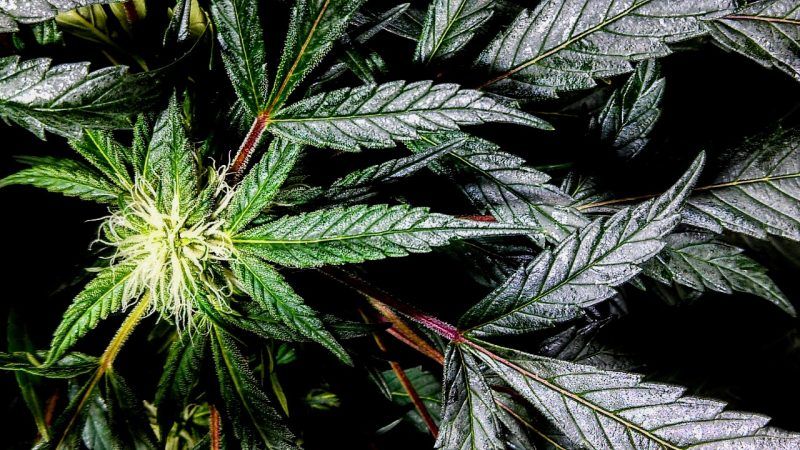South Dakota Voters Legalize Medical and Recreational Marijuana
It is the first state to do both at the same time.

Voters in South Dakota on Tuesday said yes to legalizing both medical and recreational marijuana. With 80 percent of precincts reporting, more than two-thirds of voters favored Initiated Measure 26, which allows patients with a physician-certified "debilitating medical condition" to use marijuana as a medicine. Constitutional Amendment A, which allows recreational use and creates a licensing system for commercial production and distribution, was winning by five points.
South Dakota joins 34 other states that already recognized cannabis as a medicine, including its neighbors North Dakota, Montana, and Minnesota. Mississippi voters also approved a medical marijuana initiative on Tuesday, bringing the total to 36. South Dakota is the 14th state to allow recreational use, joining New Jersey and Arizona, where voters approved legalization on Tuesday, and 11 other states that had already taken that step. It is the first state without an existing medical marijuana program to approve broader legalization.
Measure 26 applies to patients who suffer from "cachexia or wasting syndrome; severe, debilitating pain; severe nausea; seizures; or severe and persistent muscle spasms" caused by "a chronic or debilitating disease or medical condition or its treatment." It allows qualified patients to obtain marijuana from state-licensed dispensaries and possess up to three ounces at a time. They also can seek permission to grow up to three plants at home.
Constitutional Amendment A allows adults 21 or older to possess up to an ounce of marijuana in public and, if they lived in jurisdictions with no cannabis retailers, grow up to three plants at home. The state Department of Revenue is charged with licensing and regulating growers, wholesalers, and retailers. The deadline for writing regulations is April 1. The state will collect a 15 percent tax on marijuana sales.
A Mason-Dixon poll conducted from October 19 through 21 put support for medical marijuana at 74 percent. In the same poll, just 51 percent of voters wanted to legalize recreational use; 44 percent were opposed, while 5 percent were undecided.
[This post has been revised to correct the number of states that allow medical use of marijuana.]


Show Comments (10)